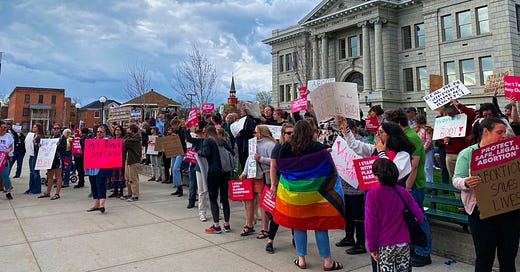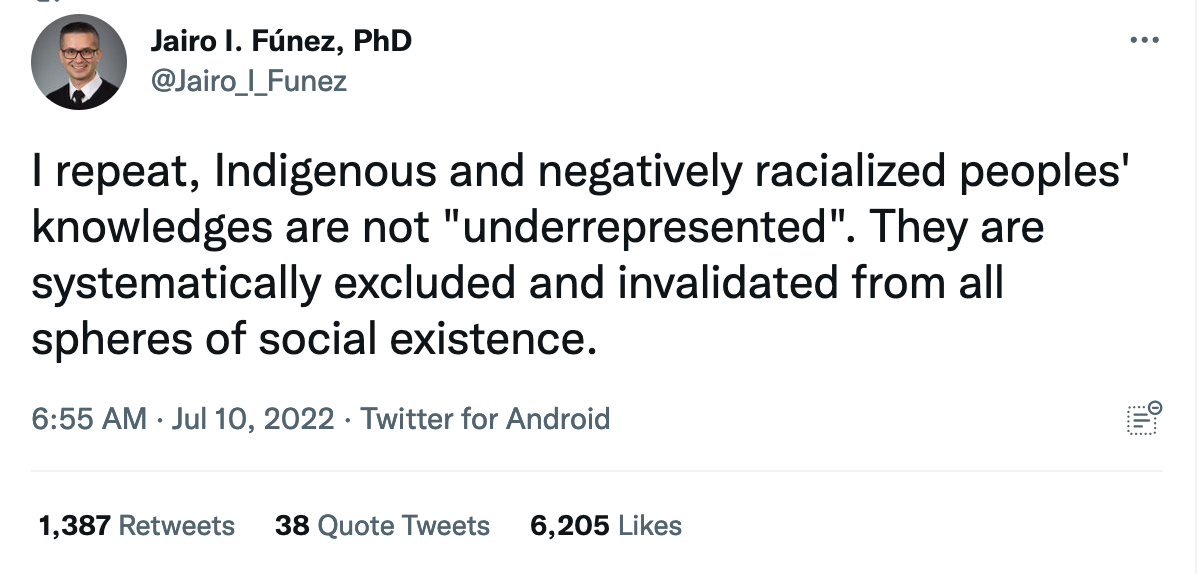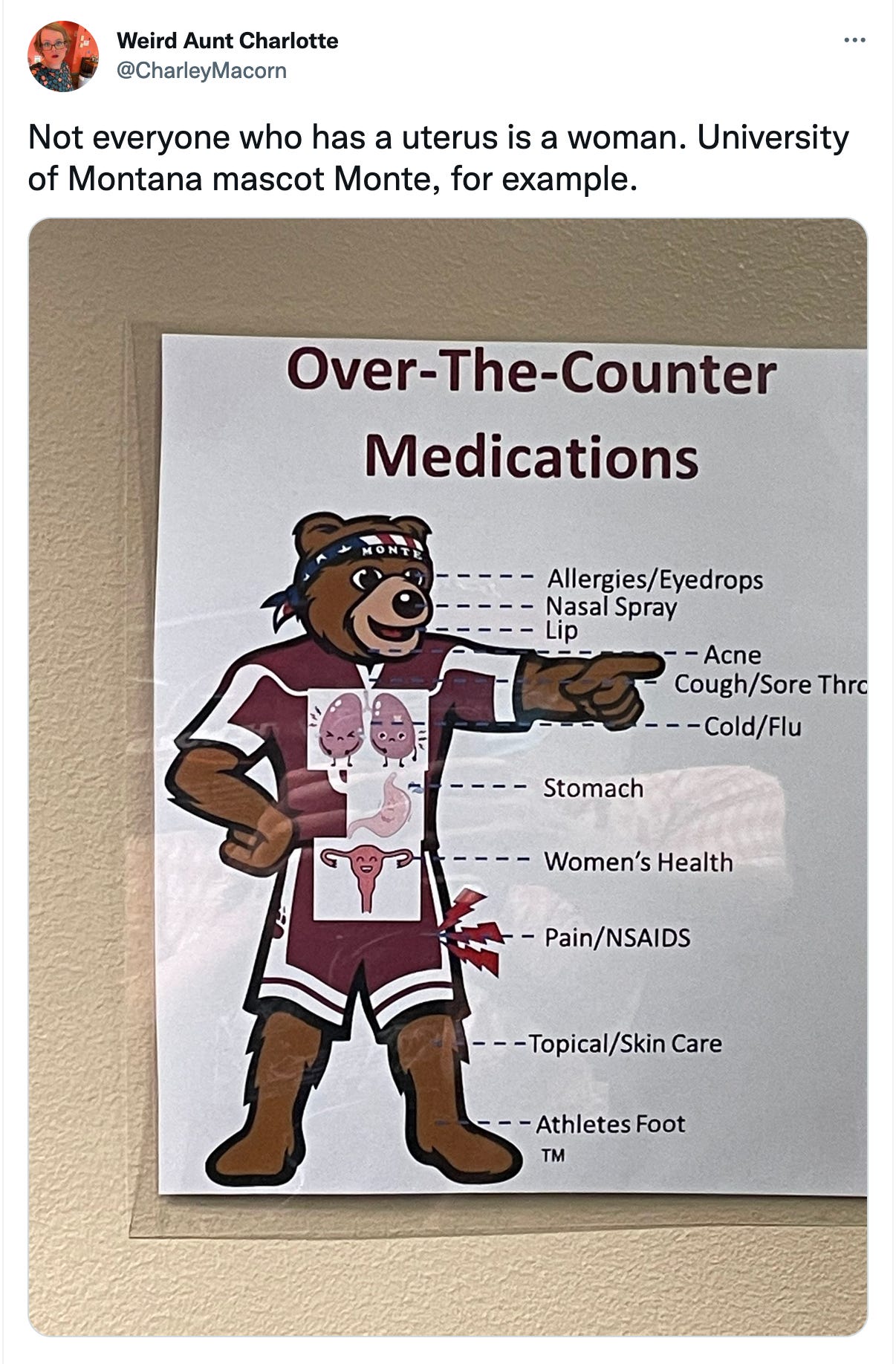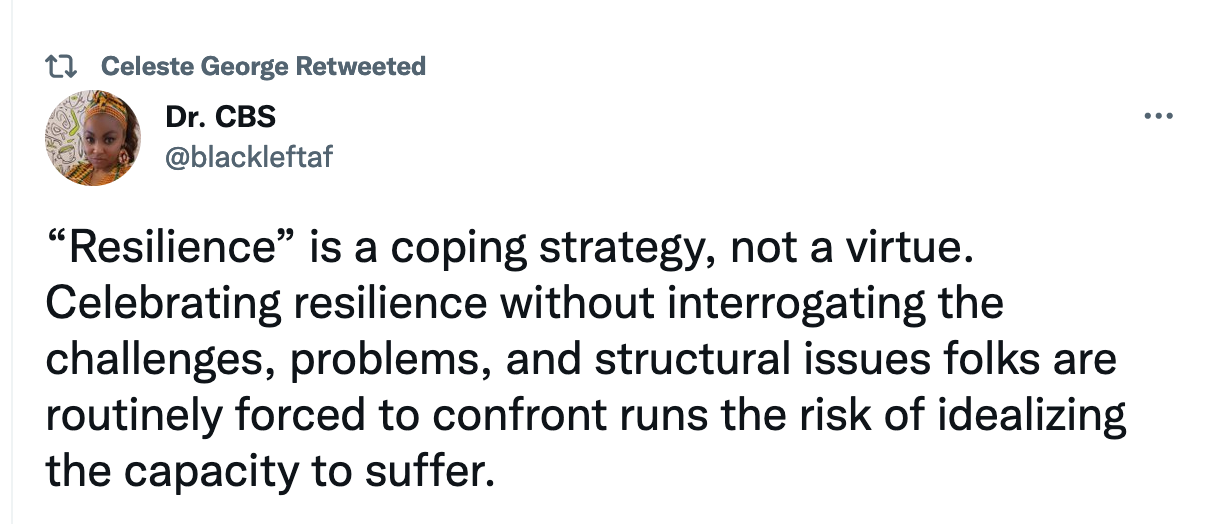Boozhoo! Aaniin! Welcome to another edition of An Irritable Métis. Have I expressed proper gratitude to all of you who keep coming back to read week after week? There are so many other things to read, so much other stuff to do … I am truly grateful. So, chi-miigwech for your time. Maybe you’ve forgotten what all this is even about, or you’re new here, whatever, you may refresh your memory here. If you want to help keep a writer out of hard labor, well….
On that note, I find myself with a dozen or so copies of the new issue of the Whitefish Review: #27, “The Vortex.” They are contributor copies, as TWR published an essay of mine. Now, even my ego can’t accommodate fourteen copies on the shelf, so I thought, while supplies last, I’d offer a copy to any new paid subscriber. Just subscribe and send me your address (you may reply to the confirmation email, I think) and I’ll get it out in the mail. If you already have a subscription, subscribe someone as a gift and I’ll send you a copy.
You can order copies directly from them as well, and I’m sure all the good local bookstores in Montana will have copies too.
Early in the writing of Becoming Little Shell it became apparent that I was writing about more than just one family, one struggle. This revelation was the result of listening to other peoples’ stories. Some were in the context of what I originally thought I was exploring – what makes some Indigenous people deny their Indigenous heritage1 – but it evolved to be the story of anyone who has had to hide who they are. Whether it is to their family, to their community, the world … even themselves. It is my hope that I get the story I’m telling right in such a way that folks who aren’t necessarily Indigenous can see themselves in the struggle of the Little Shell. The story of how we have had to fight to prove what we have always known: who we are, that we exist, and that we belong. I’m not talking about any “giving voice to the voiceless” bullshit either. Because everyone has a “voice.” It’s just that there is a diabolical, centuries-old patriarchal machine doing its very best to keep any voices that aren’t cis male, heteronormative and white silenced. And so many of the rest of us are forced to be “resilient” in the wake of this and it sucks and we need to crush it.
As much as the process of this work has amplified my ideas of what “social justice” means, there remain blind spots. How to talk about abortion, for example. This remains an issue where my perspective has evolved and continues to. I’ve never been against it but I’ve had to change what it means to be in favor of it. I remember more than thirty years ago being asked what I thought about it by a friend who had spent years fighting fascists in the clinic-bombing, doctor-shooting, anti-abortion trenches of the American Southeast. When I said something stupid I’d heard somewhere else like, “I’m not opposed to it but I don’t think it should be used as a form of birth control,” I was suitably … set straight. I’m embarrassed to admit such words have ever come out of my mouth. Truth is, I was a dumbass twenty-something who didn’t know anyone who’d had an abortion and was simply ignorant2. I learned.
What else have I learned? How about that it’s not enough to be pro-choice? One must be pro-abortion, whatever the reason, and that there really doesn’t need to be a reason. That abortion is health care, not something different, and should be treated as such. Also that anti-abortion zealots, while largely waging war on women, aren’t just waging war on women.
This is probably the most recent revelation. When the story first broke that the SCOTUS was going to overthrow Roe, and then did, like so many I was reacting to it as a case of women’s rights. But it’s so much bigger than that. It took the voices of trans men speaking up, of nonbinary folks speaking up, of anyone who can get pregnant at all for any reason speaking up, to make me realize that it’s not just women. It’s all of these people. It’s children. It’s disabled people. If you broaden the lens, abortion affects people who can’t get pregnant either in myriad ways. It affects everybody. All of this is so obvious that, like me, I imagine many of you hadn’t viewed the discussion in this way. It happens. That’s what being a person is: we learn different perspectives and we evolve our thinking.
“The man who views the world at 50 the same as he did at 20 has wasted 30 years of his life.” ― Muhammad Ali
Of course not everyone living in ignorance thought to themselves, “Holy shit, I hadn’t even considered all that! What a dumbass! Of course it affects more than just people who identify as ‘women’!” Immediately instead there was a resounding chorus of, “Holy shit, now there is a war on women from the left too!” simply because other folks with their lives at stake were entered into the conversation, a position which is clueless, stupid, and false.
Parker Molloy, “a Chicago-based writer, music aficionado, and animal-lover,” writes comprehensively on this latest shitshow from her newsletter, The Present Age, in a post called, “Nobody is Trying to Ban the Word Woman.” It is excellent and reading it is a worthy use of a few minutes of your time.
There’s also this passionate thread from a transgender person I follow on Twitter, Evan Urquhart:
When we expand the language of the discussion to include more than women it isn’t in any way diminishing the harm being done to women, as Urquhart says in his last line there. To suggest so is ludicrous. We also need to make sure we think hard about how we choose to expand that language.
I got in a big online dust-up over replacing “women’s rights” with “human rights” because I don’t think calling abortion rights “human” rights – which of course they absolutely are, along with a bunch of other things – goes far enough.3 The reason I feel strongly about this is the person who doesn’t see anyone other than women in calling abortion rights “women’s rights” sure as hell isn’t going to see them any better when the language gets changed to “human rights.” If you want to advocate for people, to stand up for them, you have to name them. I know we tend to want succinct little slogans to address these angry conversations but this is one where there isn’t one. When shifting to calling abortion a human rights issue without naming trans men specifically, for example, I don’t think you are advocating with the level of support all of these people need. We need to make people understand the shared challenges that make us more alike than not.
But don’t take my word for it. I asked Parker Molloy herself if calling them human rights goes far enough. She answered:
“I think that it's important to specifically mention the group that is primarily affected by an issue. In the case of Roe v. Wade being overturned, for instance, I think it's essential that people understand that the primary targets of these actions are women. Yes, women's rights are human rights. Yes, trans rights are human rights. Yes, gay rights are human rights, and so on. But if you just flatten everything down to just "human rights," it becomes more difficult to actually pinpoint the issues at hand.”
Pivoting to “human rights” isn’t the same kind of flattening of the discussion that challenging “Black lives matter” with “all lives matter” does but it absolutely is a relative. Both dilute the suffering of the people – the ones constantly expected to be “resilient” in the face of adversity – most affected. Both require less thought by the person making the challenge than the real issues do. Both contribute to the erasure of people continuously being erased.
No, I’m not going to freak out if someone says abortion is about human rights, just like I’m not going to freak out if someone says abortion is about women’s rights. Both are true. I just think we need to try really, really hard to do better than that.
We are not living in anywhere near an equal world. Some human rights are valued more than others, beginning with cis male, heteronormative and white, and descending from there.
I am of a people constantly called resilient and I assure you: nobody wants to be resilient and it isn’t a fucking compliment. People want to be seen. People want to be acknowledged. We owe it to people suffering to do whatever we can, to speak the words that need spoken, to honor their struggle. Even when it’s challenging to do so. Especially when it’s challenging.
This is a hill I will die on.
A great example of this is shown in the documentary Rumble: The Indians Who Rocked the World, where almost to a person the subjects were advised during their careers to “be proud of who you are, but never let them know you are an Indian.” This one gets my highest recommendation.
Didn’t know I knew anyone, that is….
I think it was more a case of miscommunication than disagreement as often happens in text-based communication, where neither side is really paying attention to what the other is actually saying, and I regret it and have felt like shit for engaging in it








“nobody wants to be resilient and it isn’t a fucking compliment.” #nailedit
There’s a lot going on here. I appreciate each thread in your latest missive. The titular sloganie swipe at so-called resilience, though... that one got me.
I suffer seemingly empty-headed sloganism in my field of education, which celebrates and even targets resilience as something we should teach.
But it’s not empty headed. It’s perniciously intentional.
It astounds me that we, educators can’t (won’t) see the truth of this - that we’re aiming to prepare children to suffer. That’s it. We hide it behind words like persistence or its latest racist iteration, grit.
Dammit, but this angers me. We (I) must turn this around. Change/mute the thing(s) that cause the suffering of children instead of preparing children for pain.
It’s exactly, exactly the same mentality that suggests it makes sense to arm teachers and teach children to duck and cover. It is blindly, clumsily, intentionally obfuscating the point: that the larger structures in place like schools are the thing we are training children to endure, so that when they are adults, they might “succeed” while maintaining the very structures that suppress and dehumanize.
Horse feathers.
Sorry. Got kinda ranty. Please forgive me. But your letter hit a dissonant chord for me. Thanks for a moment of clarity. And I see your point about the limitations of texty spaces. This so needs careful, considerate conversation with a bunch of people around the table, including students.
Cheers,
-Nigel